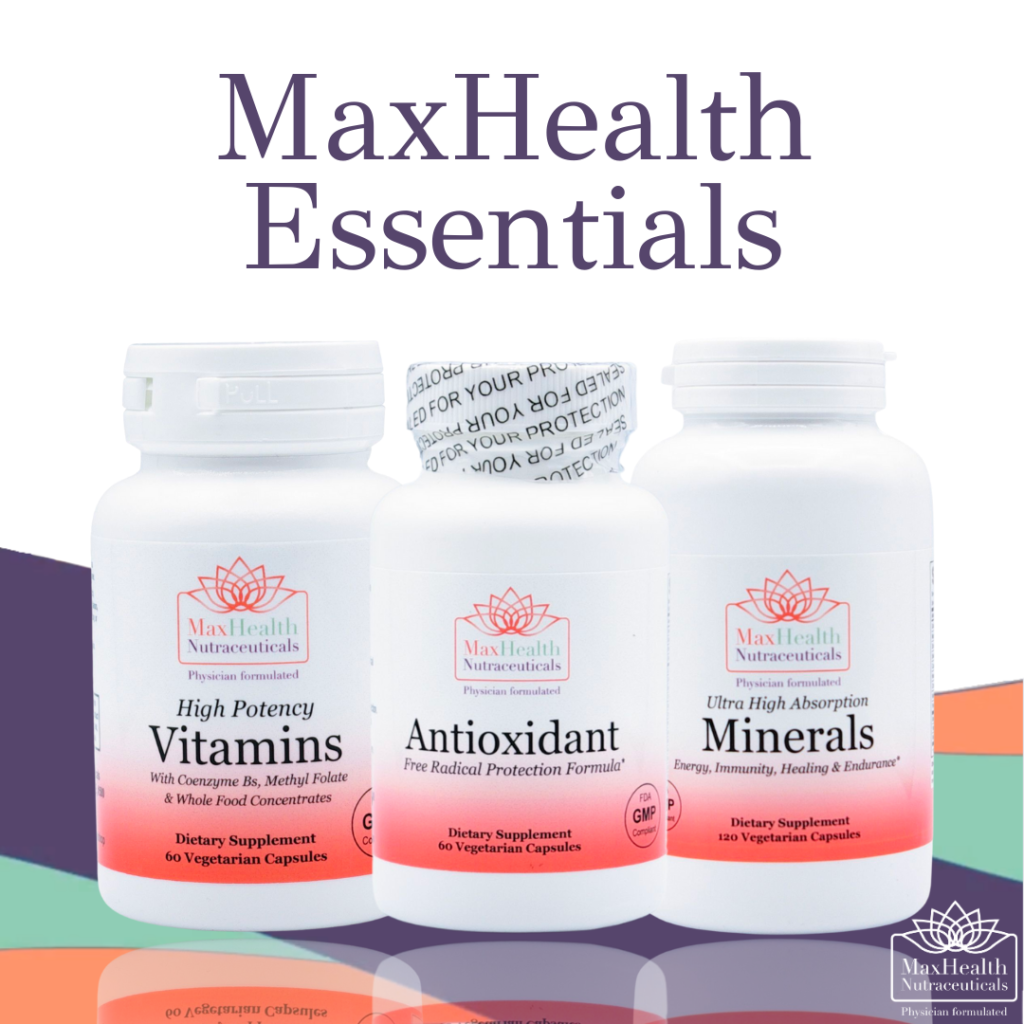

It was a cold and rainy night in the heart of New York City, the glaring neon signs reflected against the wet asphalt, pulsating with the city’s vibrant energy. In a small, bustling cafe nestled among towering skyscrapers, two individuals sat huddled over steaming cups of coffee, their expressions solemn, their conversation grave.
“I just can’t believe it, Jane,” muttered John, a 45-year-old ad executive, his hands nervously clasping his coffee mug. His face, usually so full of life and laughter, was etched with worry lines that belied the growing crisis.
Jane, a seasoned health journalist, shared his sentiment. Her fierce determination for the truth, however, remained undeterred. She leaned back, her eyes narrowing slightly as she considered his words. “You know as well as I do, John, that we’ve been in this industry long enough to know that not all is as it seems,” she said, her voice steady.
John shifted uncomfortably. “But we’re not just talking about a few hidden sugars here or a bit of unhealthy fat there. We’re talking about products that people use every day, that they trust to be safe, healthy.”
Jane nodded, her eyes never leaving John’s. “Exactly, which is why the truth needs to come out.”
The silence that followed was deafening. In this era of consumerism, where products were judged on their outward packaging and catchy slogans, the insidious truth of what lay beneath was often conveniently brushed aside. They both knew that the corporate giants they were about to face wouldn’t take kindly to their secrets being spilled.
“But how?” John’s voice was barely a whisper, a reflection of the enormity of the task they were contemplating.
Jane set down her cup, determination resolute in her eyes. “We do what we do best, John. We use our skills, our influence. We educate the public. We expose the truth.”
And so began a mission, a crusade against the purveyors of unhealthy products, against the corporate Goliaths who would rather their consumers remain in blissful ignorance than face the harsh realities of their products. This battle was not just about enlightening the public; it was about empowering them, about sparking a change that went beyond labels and advertising campaigns.
And now, dear readers, we invite you to join us on this journey. A journey of uncovering the unspoken truths that many producers of everyday products would rather you never knew. We’re about to delve into a world that challenges the very foundations of consumer trust, and we hope that you’re ready.
Welcome to the revealing world of ‘Unhealthy Product Truth: Government Battles Predatory Industries’. Continue reading below…

In the pursuit of understanding the Unhealthy Product Truth, it is essential to examine how government intervention can play a role in protecting consumers from predatory industries. As busy professionals navigating today’s complex world, knowledge about these interventions and their implications on our health is crucial.
We will delve into various aspects of governmental efforts to regulate unhealthy products. We will explore the Denmark Fat Tax experiment and its lessons learned, as well as discuss the controversial ‘Nanny State’ argument often used against such interventions. Furthermore, we will analyze societal costs associated with unhealthy choices and their impact on healthcare systems.
Finally, we’ll investigate tactics employed by tobacco companies before advertising restrictions were implemented and food industry lobbying efforts that undermine consumer protection measures like traffic-light labeling systems. By shedding light on successful government interventions in promoting healthier choices, this post aims to empower you with valuable insights into the Unhealthy Product Truth.

Minimize Medications. Maximize Health.
Are you super busy but need to take control of your health? Are you tired of being tired? Subscribe to my “Minimize Medications, Maximize Health Blog” and I’ll give you 7 Tips to Get Healthy in No Time absolutely FREE.
You have Successfully Subscribed!
The Denmark Fat Tax Experiment
In 2011, Denmark made headlines by introducing the world’s first tax on saturated fat. This bold move aimed to combat obesity and promote healthier eating habits among its citizens. However, this initiative was short-lived as it was abolished after just 15 months due to public opposition and industry lobbying efforts. Let’s take a closer look at what happened during this fascinating experiment.
Reasons behind implementing the fat tax in Denmark
The imposition of the Danish fat tax was mainly to lower the ingestion of saturated fats that are linked with non-communicable ailments such as heart disease and diabetes. Believing that taxation of unhealthy foods would motivate people to make healthier choices, the government implemented the fat tax.

Public response and challenges faced during its implementation
Despite noble intentions, the Danish fat tax faced several obstacles from both consumers and businesses alike. Many Danes saw it as an infringement on personal freedom while others argued that it disproportionately affected low-income households who rely more heavily on processed foods for sustenance. Additionally, some companies threatened job losses or relocation due to increased production costs caused by the new legislation.
- Consumer backlash: The public reaction against the tax was swift with many accusing their government of being part of a “Nanny State” attempting to control individual dietary choices.
- Lobbying efforts: The powerful food industry lobbied aggressively against this policy change, arguing that it would lead to job losses and negatively impact the economy.
- Border shopping: Some Danish consumers started crossing borders to purchase cheaper, untaxed products in neighboring countries like Germany and Sweden, leading to a loss of revenue for local businesses.
Lessons learned from the Danish experiment
The short-lived fat tax in Denmark offers valuable insights into how governments can approach public health initiatives. One key takeaway is that effective communication with citizens about the rationale behind such policies is crucial. In this case, many people felt blindsided by the new tax without fully understanding its purpose or potential benefits. Additionally, finding ways to collaborate with industries rather than alienating them could result in more successful outcomes when implementing similar regulations.
To sum up, the food industry and drug administration should work together to promote healthier food choices and reduce the consumption of processed foods that contribute to non-communicable diseases like heart disease and diabetes.
The Denmark Fat Tax Experiment provided a valuable insight into the effectiveness of taxation as an intervention for public health, but also highlighted some of its drawbacks. By contrast, the ‘Nanny State’ Argument focuses on government regulation and consumer protection through legislation.
Key Thought:
Denmark introduced the world’s first tax on saturated fat in 2011 to reduce consumption of unhealthy foods and promote healthier eating habits. However, it faced challenges from consumers who saw it as an infringement on personal freedom and companies that lobbied against the policy change. The experiment offers valuable insights into effective communication with citizens about public health initiatives and collaborating with industries for successful outcomes when implementing similar regulations.
The ‘Nanny State’ Argument
Opponents of government intervention often use the term ‘Nanny State’ to criticize regulations that aim to protect consumers from unhealthy products or practices. They argue that such measures undermine individual freedom and personal responsibility, ultimately empowering industries with vested interests in maintaining their market share. Let’s delve deeper into this argument and its implications on public health policies.
Origins of the Nanny State Argument
The phrase “Nanny State” was first used in Britain during the 1960s to criticize governments for their excessive control over citizens’ lives. It gained traction among critics who believed that individuals should be allowed to make their own choices, even if those decisions might lead them down an unhealthy path. Critics of regulations aimed at curbing non-communicable diseases have embraced the idea that individuals should be allowed to make their own choices, even if those decisions may lead them down an unhealthy path.
 An old wet nurse symbolising France as nanny-state and public health provider (colour photomechanical reproduction of a lithograph editorial cartoon by N. Dorville,1901)editorial cartoonby N. Dorville, 1901)
An old wet nurse symbolising France as nanny-state and public health provider (colour photomechanical reproduction of a lithograph editorial cartoon by N. Dorville,1901)editorial cartoonby N. Dorville, 1901)
Examples of Legislation Labeled as Nanny State Interventions
- New York City’s soda ban: In 2012, then-Mayor Michael Bloomberg proposed a controversial regulation limiting the size of sugary drinks sold in restaurants and other venues. Critics argued it infringed upon consumer choice while supporters claimed it would help combat rising obesity rates.
- Australia’s plain packaging laws for tobacco products: Implemented in 2011, these laws required cigarette packs to display graphic health warnings and removed all branding elements. Opponents claimed it violated intellectual property rights and personal freedom, while proponents argued it would reduce smoking rates.
- Denmark’s fat tax: As mentioned earlier, Denmark introduced a tax on saturated fats in 2011 to encourage healthier eating habits. Despite fierce opposition from the public and industry groups, Denmark’s fat tax was seen by many as an important step in protecting consumers.
Counterarguments Supporting Government Regulation for Consumer Protection
Proponents of government intervention advocate for regulation to protect consumers from unscrupulous companies that prioritize profits over public health, as this can lead to higher rates of chronic diseases due to misleading product information and targeted marketing. They contend that without regulations in place, these businesses have free rein to exploit vulnerable populations through targeted marketing campaigns and misleading product information – tactics which contribute significantly to rising rates of obesity, insulin resistance, and other non-communicable diseases. Furthermore, they assert that individuals cannot make informed choices about their health if they lack accurate information about the products they consume – something that can only be achieved through proper labeling standards enforced by drug administration agencies.
In essence, the ‘Nanny State’ argument is a double-edged sword: On one hand, excessive governmental control may indeed infringe upon individual freedoms; however, on the other hand, necessary interventions can help protect consumers from unscrupulous practices employed by profit-driven industries. The key lies in striking a balance between safeguarding public health interests while respecting personal autonomy – no easy feat when powerful industry players are involved.
The ‘Nanny State’ discussion has been a source of contention for some time, stirring up much disagreement. Despite the controversy, it is clear that unhealthy choices have an impact on society and must be addressed to ensure overall well-being. Exploring the effects of personal choices on society, we shall investigate how individual autonomy can be reconciled with collective wellbeing.
Key Thought:
Opponents of government intervention criticize regulations that aim to protect consumers from unhealthy products or practices, using the term ‘Nanny State’. Proponents argue that such measures are necessary to protect consumers from predatory industries like tobacco or processed food companies who prioritize profits over public health. Striking a balance between safeguarding public health interests while respecting personal autonomy is essential when powerful industry players are involved.
Societal Costs of Unhealthy Choices
It’s no secret that our personal choices can have a ripple effect on those around us, and when it comes to health, the consequences are far-reaching. From skyrocketing healthcare costs to lost productivity in the workplace, unhealthy decisions don’t just impact individuals but also put a strain on society as a whole. This raises an important question: should governments step in to help minimize these costs? Let’s dive into some key factors that justify government intervention.
Economic Consequences Related to Obesity and Smoking-Related Illnesses
Chronic diseases like obesity and smoking-related illnesses account for billions of dollars spent annually on healthcare services, medications, and lost productivity. In fact, non-communicable diseases such as heart disease or diabetes caused by poor lifestyle choices contribute significantly to rising medical expenses worldwide. For example:
- The US spends nearly $190 billion per year treating obesity-related conditions.
- The US alone bears a financial toll of over $300 billion annually due to tobacco use, an amount that could be avoided with healthier choices.
These staggering figures highlight how individual choices can burden economies with unnecessary expenditures – money that could be better spent elsewhere if people made healthier decisions.
Burden Placed Upon Healthcare Systems by Preventable Diseases
Apart from financial implications, preventable diseases also place immense pressure on already overburdened healthcare systems. With increasing rates of chronic conditions like insulin resistance or hypertension due largely to unhealthy lifestyles (hello processed foods!), hospitals struggle with overcrowded facilities while doctors face burnout trying their best to treat patients suffering from avoidable ailments. This is where government intervention can play a crucial role in promoting public health and alleviating the strain on healthcare systems.
Balancing Individual Freedoms with Societal Well-Being
While personal freedom is an essential aspect of modern society, it’s important to recognize that individual choices don’t exist in a vacuum. When people make unhealthy decisions – whether it’s lighting up another cigarette or indulging in fast food for every meal – they’re not only harming themselves but also contributing to societal issues like increased medical costs and decreased productivity at work.
How can we reconcile personal liberty with the public good? One solution lies in implementing targeted government interventions aimed at educating consumers about potential risks associated with certain products (think drug administration warnings) or encouraging healthier habits through incentives such as tax breaks for gym memberships. By doing so, governments can empower citizens to make informed choices without completely restricting their freedom.
In essence, taking control of your health isn’t just about looking after yourself; it’s also about recognizing the broader implications of our actions on society as a whole. And sometimes, that means acknowledging when government intervention might be necessary to help steer us towards better choices – because let’s face it: left unchecked, industries profiting from unhealthy products like those in the food industry won’t always have our best interests at heart.
The repercussions of making unhealthy choices can be costly for our society, both financially and socially. In contrast, government intervention has been an effective tool in limiting predatory industries from exploiting consumers through marketing tactics.
Key Thought:
Unhealthy lifestyle choices like smoking and overeating lead to chronic diseases that cost billions of dollars in healthcare services, medications, and lost productivity. Government intervention can help promote public health by educating consumers about potential risks associated with certain products or encouraging healthier habits through incentives such as tax breaks for gym memberships while balancing individual freedoms with societal well-being.
Successful Government Interventions
While the “Nanny State” argument often paints government intervention in a negative light, there are numerous examples where such actions have led to positive public health outcomes. Let’s explore some of these success stories and see how effective regulation can help protect consumers without infringing on personal freedoms.
Tobacco Advertising Restrictions and Their Impact on Smoking Rates
In the 1960s, tobacco companies were spending millions of dollars on television advertising to promote their products. However, smoking rates began to decline after the US Federal Communications Commission (FCC) implemented the Fairness Doctrine in 1967. This required broadcasters to present both sides of controversial issues like smoking and its impact on health.
The doctrine eventually led to cigarette ads being banned from TV and radio by 1971 under the Public Health Cigarette Smoking Act. As a result, adult smoking rates dropped from around 42% in 1965 to about 14% in recent years – proving that government intervention can indeed make a difference when it comes to promoting healthier choices.

The Fairness Doctrine Example and Its Relevance to Consumer Protection
Beyond just tobacco control efforts, the Fairness Doctrine serves as an excellent example of how governments can effectively regulate industries without compromising individual liberties. By requiring equal airtime for opposing viewpoints, this policy ensured that consumers had access to balanced information about controversial topics – empowering them with knowledge rather than limiting their freedom.
This approach can be applied to other industries as well, such as the food industry, where providing clear and unbiased information about product ingredients and nutritional content could help consumers make informed decisions about their diet.
Other Successful Interventions Promoting Healthier Choices
There are several other instances where government intervention has led to positive health outcomes for society:
- Sugar taxes: Countries like Mexico, Hungary, and the UK have implemented sugar taxes on sugary drinks in an effort to combat obesity and related non-communicable diseases. These measures have been successful in reducing consumption of unhealthy beverages while generating revenue for public health initiatives.
- Trans fat bans: In response to mounting evidence linking trans fats with heart disease, governments around the world – including Denmark, Switzerland, Canada, and even New York City – have successfully banned or restricted these harmful substances from food products.
- Vaccination campaigns: Government-led vaccination programs have played a crucial role in eradicating or controlling deadly diseases like smallpox, polio, measles, mumps rubella (MMR), hepatitis B virus (HBV) among others – saving countless lives worldwide.
In each of these cases, government intervention has been key to promoting healthier choices and protecting consumers from harmful products. With rising rates of non-communicable diseases like insulin resistance and other health concerns, it’s clear that more action is needed from both the government and the food industry to ensure that consumers have access to safe and healthy products. As consumers, we can also play a role by staying informed and advocating for better regulation and drug administration.
Key Thought:
Government intervention can lead to positive public health outcomes, as seen in successful interventions such as tobacco advertising restrictions and sugar taxes. By regulating industries without compromising individual liberties, governments can promote healthier choices and protect consumers from harmful products. Consumers can also play a role by staying informed and advocating for better regulation.
I would love to give you a free resource sheet to support your overall wellness. Click the button below to receive your gift.
I really wanted to talk about this topic today because your natural health and wellness is important. You can adopt healthy lifestyle practices that improve your health, your environment, and enrich your life, which can in turn improve the lives of those close to you. You have the power to break the cycle of poor health, including chronic disease, so that you can leave a legacy of health to your loved ones.
I use functional medicine and lifestyle medicine as the first line of treatment, before medications, to treat lifestyle-related chronic diseases. Lifestyle-related chronic diseases include diabetes, hypertension, obesity, and some cancers, just to name a few. Lifestyle practices, such as eating a whole-food plant-based diet and regular physical activity, can help you lose weight, reverse some chronic diseases (if you suffer from them), and can even help you with detoxification. In certain cases, these approaches may even outperform pharmaceutical therapy.
But I always tell my patients that conventional medications may be appropriate at this time to prevent catastrophic illness, but over time, you can work to make the necessary lifestyle changes to possibly reduce and/or eliminate medications. Please remember to always consult your physician for your particular needs and circumstances prior to making any decisions whatsoever.
Is Dietary Supplementation Right For You?
For some people, vitamin and mineral supplements offer important health benefits. Supplements are designed to fight deficiencies found in our diet and complement the food we eat regularly. Supplements are basically “helping hands” to our daily food.
If you suspect that you aren’t getting the nutrients you need, consider shifting your focus from supplements to eating better.
But it is very important to note that we are not eating the same foods we ate years ago because the soils have been depleted of critical nutrients through current industrial farming practices. And because the soil is not as good as it used to be, the food supply (grown from the depleted soil) is not as good as it used to be. For example, you are not getting the same levels of magnesium as you would have gotten 30 or even 50 years ago.
Second, much of the food has been genetically altered, which can impact the inherent and unique nutritional composition that each food possess. For example, ancient einkorn wheat has less gluten, more protein, more Vitamin A, and more beta carotene, than modern genetically modified wheat.
Third, the toxic load in the environment today is much higher than 100 years ago. We can see this with global warming, toxic landfills, polluted oceans and waterways, etc. Toxicity levels interfere with nutrient assimilation and absorption not just into the foods, but into our bodies as well.
So… if you are unable to eat better, the supplements in my MaxHealth Essentials Bundle may provide the extra boost you need.
These are my favorite Wellness and Immune-Boosting Supplements to use! This MaxHealth Essentials Bundle will ensure you have the intake of the important vitamins, minerals, and antioxidants to decrease inflammation and boost your innate wellness day and night. Taken together, it’s a solid plan for increasing your body’s natural resiliency.
For best results make sure you use the supplements with dietary changes including a whole food plant-based diet, regular exercise (at least 2-3x per week), regular sleep (8 hours per night), and intermittent fasting (at least 1-3x per week).
Weight Monitoring
Since weight management is very important in combatting chronic diseases, I recommend that you be mindful of your weight and its fluctuations, and that you monitor your weight AT LEAST on a weekly basis. I recommend a scale that includes a body composition monitor (*this scale cannot be used with a pacemaker or other implanted devices).
Physical Activity
Physical activity (or exercise) can improve your health and reduce the risk of developing several chronic diseases like high blood pressure, type 2 diabetes, and cancer, just to name a few. Physical activity can improve your mood, boost your immune system, help you maintain a healthy weight, and is a great way to detox your body!
I often recommend yoga and resistance training for physical activity, but as you are aware, there are plenty of forms of “movement” that you can do! But for the basics, especially if you’re just getting started, yoga and resistance training are where I would start.
Yoga
Yoga can be a great way to improve your strength and flexibility, manage your stress, improve your heart health, and lose weight! I recommend using a grounded yoga mat to connect yourself with the earth and reduce inflammation.
Resistance Training
Resistance training is the mainstay for overall health. It not only has beneficial effects on reducing body fat, it also increases muscle size and strength. Check out some basic dumbbells/free weights that I recommend to everyone.
Another alternative for dumbbells/free weights are resistance bands. They are great for physical therapy, yoga, strength training, and excellent for traveling.
Remember, living a healthy lifestyle including eating a whole foods plant-based diet, regular physical activity, and reducing stress are the best ways to maintain a healthy weight. Let me know what you think in the comment section below.
Unhealthy Product Truth: Government Battles Predatory Industries FAQs
The truth about unhealthy food is that it often contains high levels of sugar, salt, and unhealthy fats. These ingredients can contribute to obesity, heart disease, diabetes, and other chronic health conditions. Unhealthy foods are also typically low in essential nutrients like vitamins and minerals.
An unhealthy product refers to any item or substance that negatively impacts a person’s physical or mental well-being when consumed or used regularly. Examples include processed foods with high amounts of added sugars, saturated fats, tobacco products, and alcohol.
Unhealthy items are detrimental because they often contain harmful substances or lack necessary nutrients for optimal health. Consuming these products frequently can lead to weight gain, nutrient deficiencies, and an increased risk of chronic diseases such as heart disease and type 2 diabetes.
The truth about sugar consumption is that excessive intake contributes to various health issues like obesity, tooth decay, and an increased risk of developing type 2 diabetes. According to Harvard Health Publishing, it’s important to limit added sugars in your diet by consuming whole foods rather than processed options laden with hidden sugars.
Final Thoughts
Through examining the Denmark Fat Tax Experiment, the Nanny State argument, societal costs of unhealthy choices, government intervention versus predatory industries, and successful government interventions, we have learned that there is a delicate balance between individual freedoms and societal well-being. While some may argue against government regulation as a form of “nannying,” it is clear that certain interventions can lead to positive outcomes for public health.
To promote healthier choices, individuals should take an active role in researching and understanding the products they consume. Additionally, supporting initiatives such as healthy food product projects can help bring attention to these issues and advocate for change in both industry practices and government policies.
Join us in taking action towards a healthier future by visiting drnicollemd.com today!
Dr. Nicolle Martin
Some of the links in this article are "affiliate links", a link with a special tracking code. This means if you click on an affiliate link and purchase the item, we will receive an affiliate commission.
The price of the item is the same whether it is an affiliate link or not. Regardless, we only recommend products or services we believe will add value to our readers.
By using the affiliate links, you are helping support our Website, and we genuinely appreciate your support.
Last updated on May 30th, 2023 at 07:34 pm

Minimize Medications. Maximize Health.
Are you super busy but need to take control of your health? Are you tired of being tired? Subscribe to my “Minimize Medications, Maximize Health Blog” and I’ll give you 7 Tips to Get Healthy in No Time absolutely FREE.







